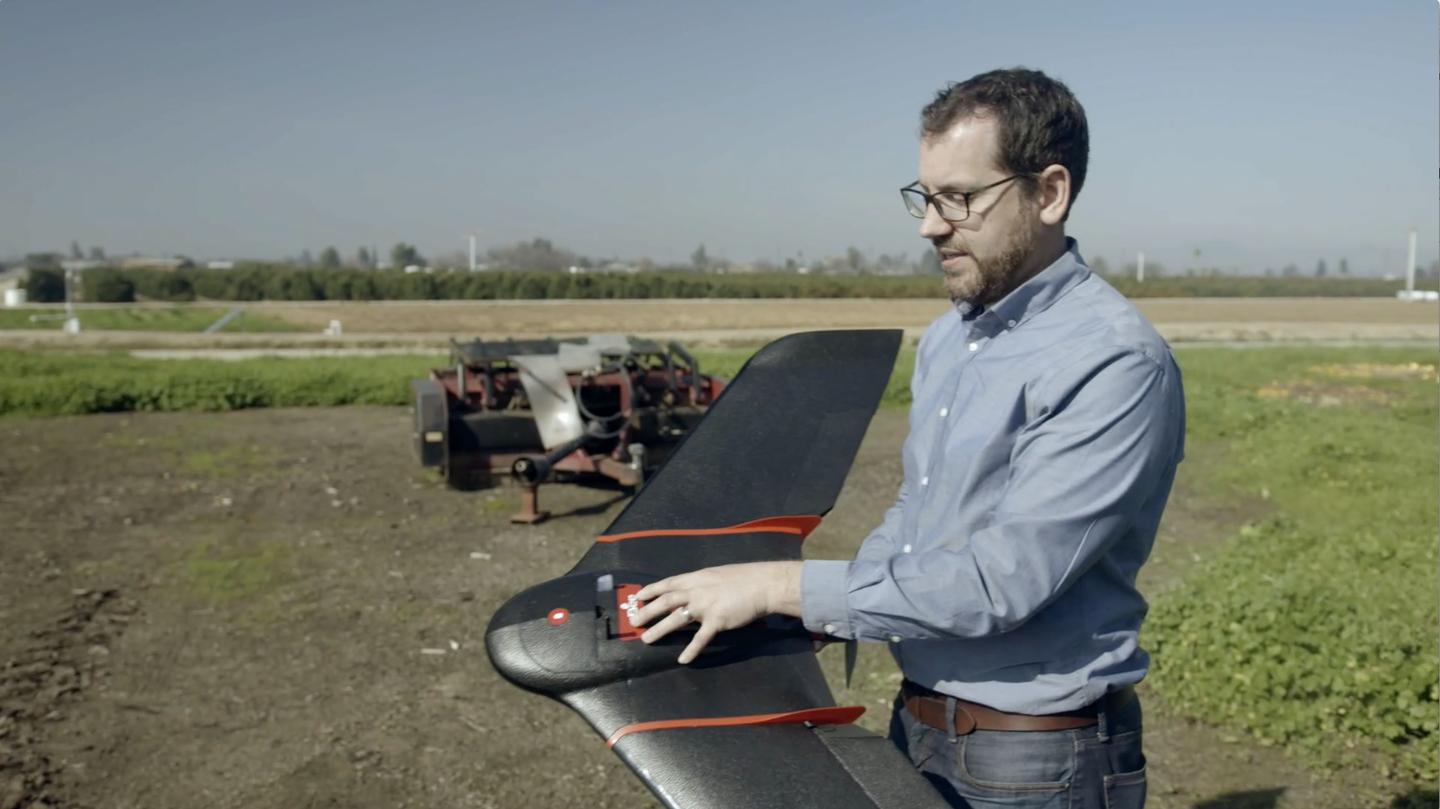Greg Crutsinger, a ecologist turned scientific program director specializing in the field of drone agriculture. He develops drone technology to help farmers struggling to grow produce in a world affected by climate change.
To celebrate the spirit of innovation and the visionary technology that went into the creation of the all-new 2017 Prius Prime, Toyota is honoring some unsung heroes. “Humans of the Year” are people who work behind the scenes to protect our environment.
Greg Crutsinger is a leading expert in drone agriculture. As the Scientific Program Director at the Berkeley, California, headquarters of Parrot Drones, one of the most important drone manufacturers in the world, Greg oversees new technology to help make farming more efficient and effective.
Formerly a tenure-track ecology professor at the University of British Columbia in Canada, Crutsinger flew drones to conduct his own research. Realizing that the greater quality of aerial data collected by commercially available drones could be a game-changer for the agricultural industry, Crutsinger left the career safety of academia and joined the team at Parrot.
‘Crutsinger is putting sensors and cameras on consumer drones, enabling them to monitor crops with high precision and at low cost.’
Drones can be used to accurately map farmland for greater success in crop watering and application of fertilizer and pesticides, to easily check snowpack levels, to have a look at the top of Redwood trees, to measure plant health by testing chlorophyll levels, and in novel ways that are being discovered each day by the likes of forward-thinking scientists like Greg Crutsinger.
Crutsinger’s efforts allow farmers to rapidly and repeatedly monitor the health of their plants from the sky, showing them which areas of land might need more water or fertilizer. He works directly with struggling farmers as they prepare for a world where extreme weather is predicted to increase due to climate change.
Better data collection means more efficient farming, higher crop yields, and lower food prices for everyone
